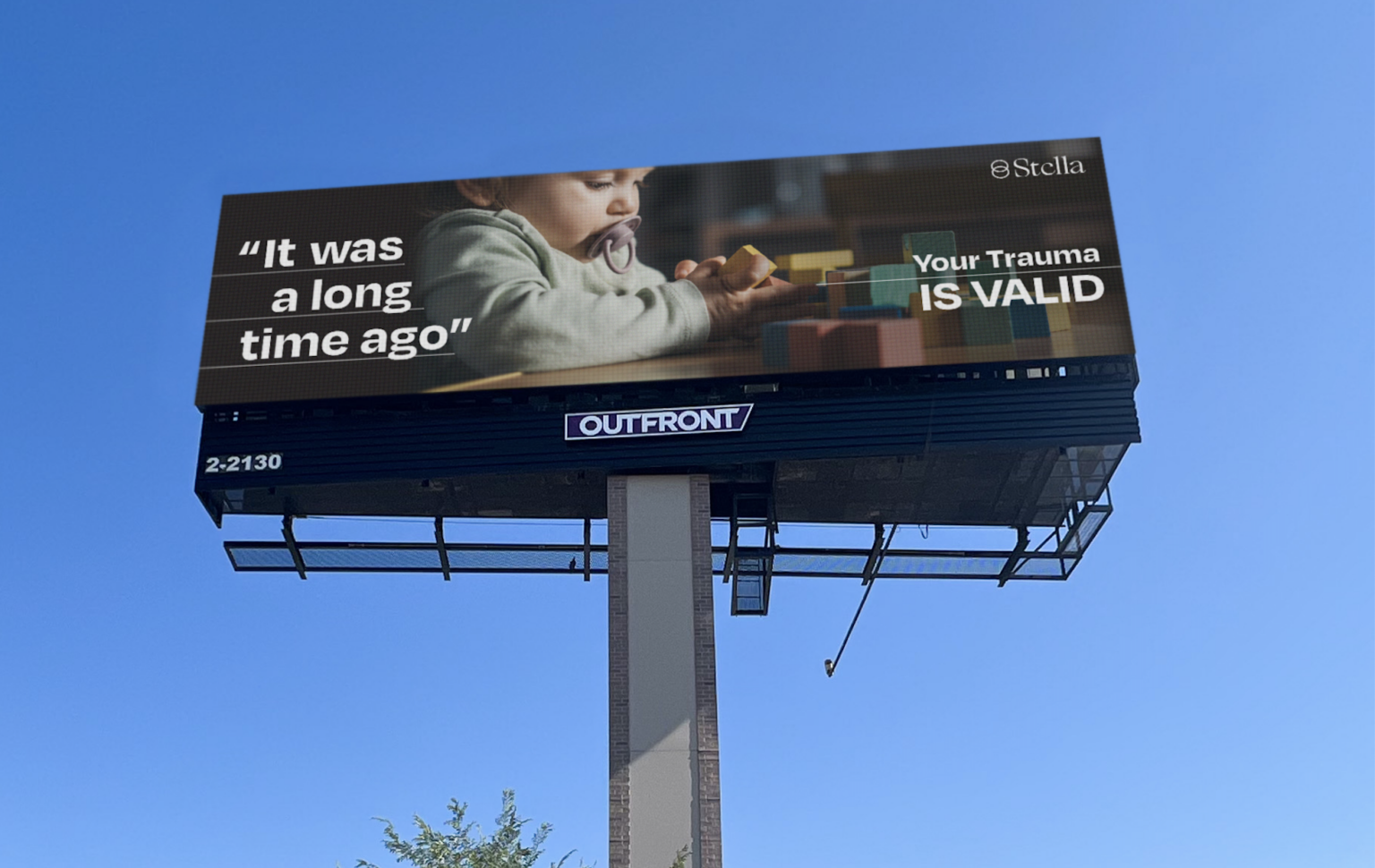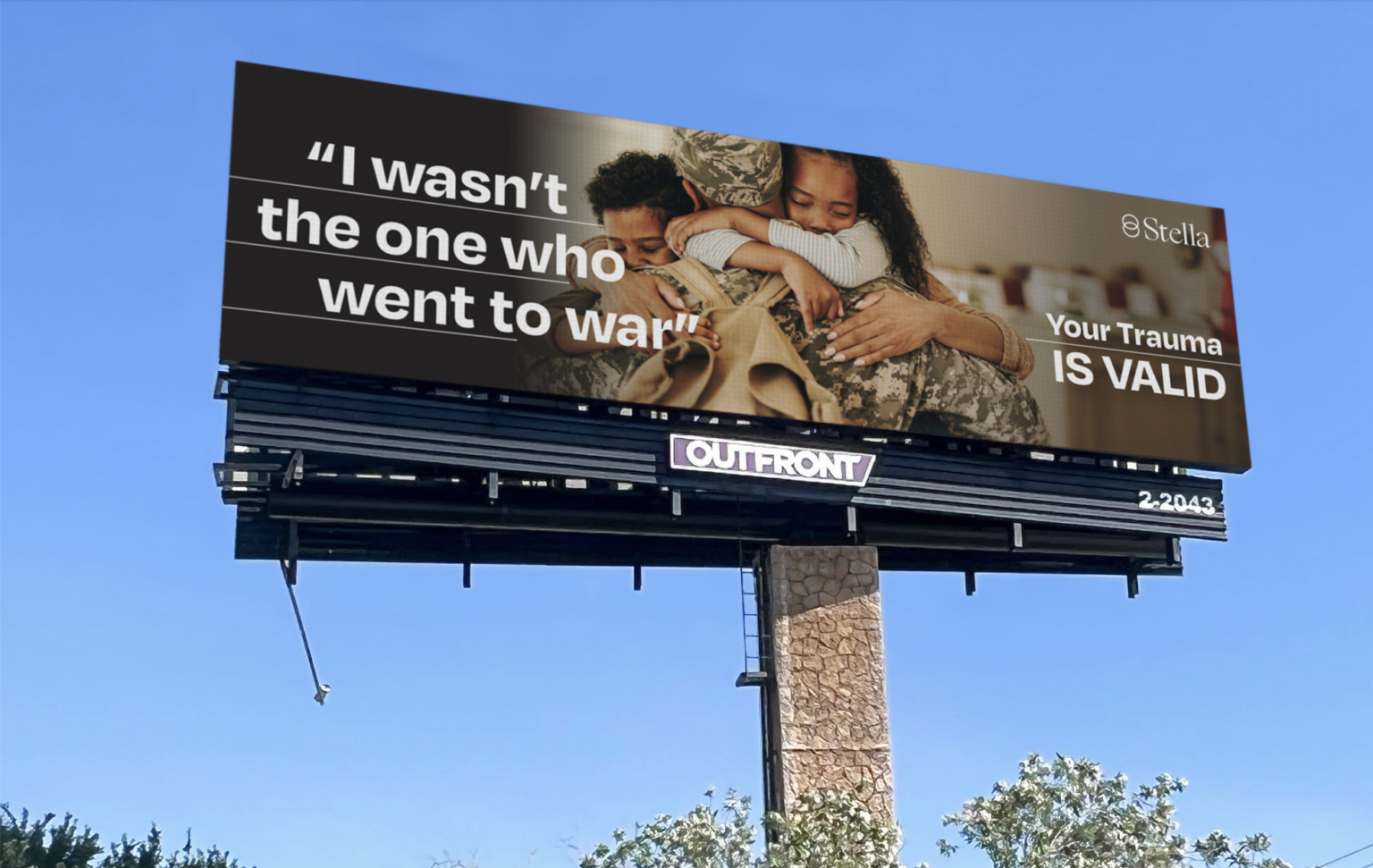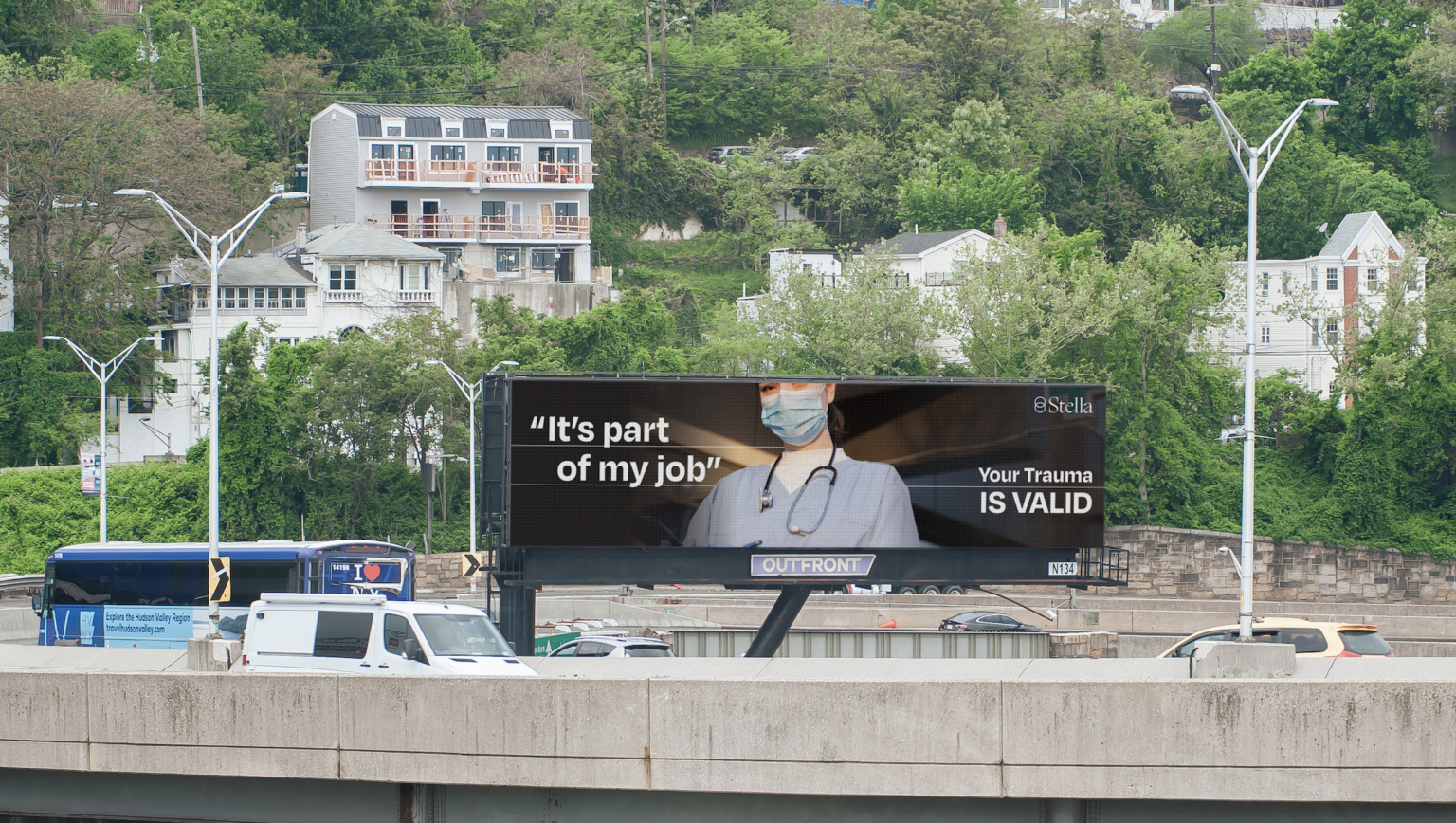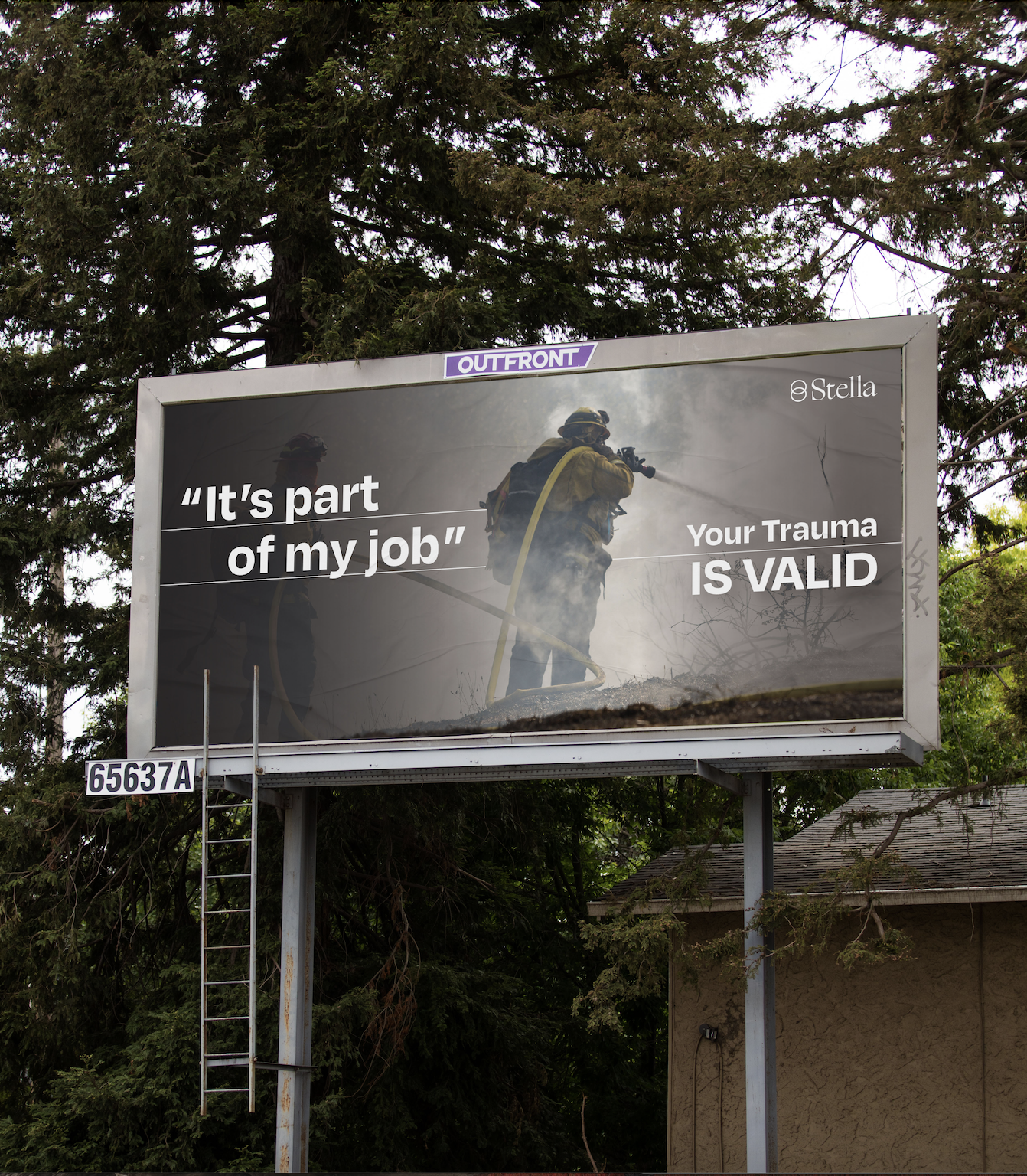"Your Trauma is Valid" Campaign Aims to Challenge How Society Justifies Personal Emotional Traumas

The national ad campaign launched during Mental Health Awareness Month and spans into PTSD Awareness Month (June) to draw attention to the excuses we tell ourselves to invalidate our emotional traumas. This campaign hopes to destigmatize PTSD and the myriad of life-altering symptoms of complex emotional traumas that go unchecked.
Today, Stella has kicked off a nationwide trauma-informed marketing campaign to destigmatize traumas called Your Trauma Is Valid.
Across the country, billboard placements can be found in various locations which each highlight different emotional traumas experienced by the area's demographics. By tapping into cultural insights around first-hand accounts to create the campaign, we hope to push forward validation and provoke those who need help to seek it.
Often, those who have experienced traumatic events have compounded unhealed traumas, but often invalidate their emotions and biological reactions because their history does not fit into pop culture's accepted definition of PTSD.
Those who are experiencing symptoms following trauma continue to feel unworthy of the title. Even Wikipedia's list of causes and symptoms reflect this outdated thinking by ignoring the mention of most modern day traumas and their common side effects like insomnia, severe anxiety, panic attacks, flashbacks, nightmares, uncontrollable thoughts, and suicidal ideation.
This trauma-informed marketing campaign pushes back against the stigmas and excuses accepted by popular culture that stops people affected by a lifetime or an episode of traumatic event(s) from exploring the proper mental health treatments that would be right for them.
"This campaign is important because there is a crucial need to destigmatize PTSD, especially for those around us who have been taught to justify their own traumas. The subject of emotional trauma is uncomfortable and can be scary for everyone at some point in life, we really wanted to challenge people's own perspectives of how they justify daily trauma."
- Matthew Erley, Chief Growth Officer at Stella
Trauma's lasting impact
The first billboard is in Dallas, Texas, and features a photo of a young child paired with the headline, "It was a long time ago." Texas was chosen due to the state with the most unique victims of child abuse in the United States in 2020.

A study released earlier this year by Stella's Chief Medical Officer, Dr. Eugene Lipov, Stella's Chief Psychologist, Dr. Shauna Springer, and other trauma experts, they were able conclude that Stella's most popular treatment, the Stellate Ganglion Block (SGB), is an effective-precision
treatment for trauma symptoms no matter ones gender, trauma type, PTS-related drug use, history of suicide attempts, or age.
"Trauma doesn't have a statue of limitations. It doesn't matter how long ago it happened, you can heal at any age."
- Chief Psychology Officer, Dr Springer
Secondary PTSD and it's impact on families
Around the corner at the Dallas Ft. Worth airport, known for its military presence, a billboard features a family hugging with the headline, "I wasn't the one who went to war". This billboard taps into Secondary PTSD in hopes of showing families of active duty members and veterans that their trauma is just as valid.

First Responders and ongoing traumas
In Weehawken, New Jersey, a billboard can be found on the commute into Manhattan at the mouth of the Lincoln Tunnel. The headline reads, "It's a part of my job" and features a medical worker. Hospitals in and around the area were hit the hardest when the COVID-19 pandemic first started and first responder trauma continues to be a global crisis. The number of physician suicides is more than twice that of the general population at 12.3 per 100,000.

Across the country at the home of The Dixie Fire in Northern California, the largest blaze of 2021, a similar message of validation for firefighters' trauma is being shared. First responders may face new traumas every day and Stella is acknowledging that no one should feel the need to say excuses out loud to justify those traumas.
"This campaign was personal. I've made up a lot of excuses over my lifetime and it took me working in the mental health space to realize my "truths" and actions aren't personality quirks, they're behavioral responses to untreated trauma."
- Kristin "KB" Busk, Head of Content
This campaign will feature additional digital ads that highlight modern-day traumas that have been previously discredited due to stigmas; like adoption, fertility issues, loss of a job and divorce.
